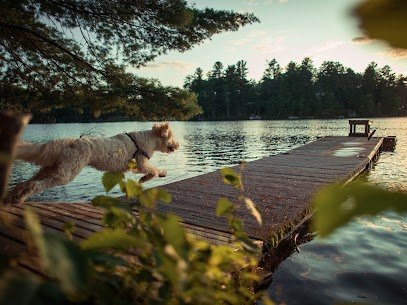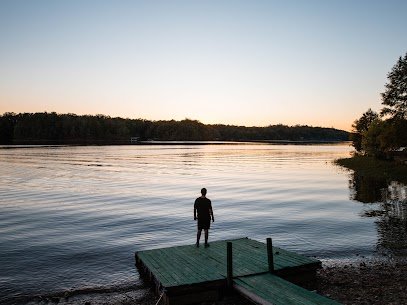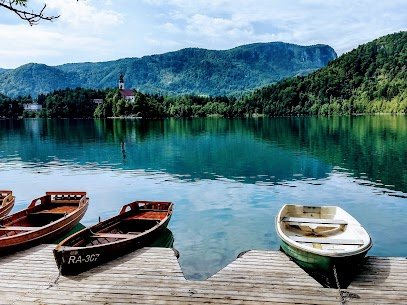FIVE QUESTIONS TO ASK WHEN BUYING A WATERFRONT PROPERTY
Lake homes are selling fast and for very close to their asking prices. In fact, across Minnesota and western Wisconsin, waterfront properties are selling twice as fast — with 52% fewer days on market — as last year. And lake home buyers aren’t getting a discount for moving fast; these lakeshore homes are closing at 98% of their listed price1.
If you're planning to buy a lakeshore home in Minnesota or western Wisconsin, come prepared with the right questions so you’re ready to make an offer when the right property comes along. Here are the top five must-ask questions when searching for a waterfront property.
1. Who manages the lake weed?
When purchasing a home on or near the lake, you’re bound to encounter aquatic plants. To maintain lake health, it’s usually best to refrain from destroying the native species that live in water. However, if plants or weeds begin to interfere with a homeowner’s access to the water or recreation in the area, it may be necessary to control excessive plant growth.
The Department of Natural Resources (DNR) near you might control the aquatic plants on your lake. If they don’t, it’s possible to ask the listing agent how the seller has controlled the lake weed in their area of water, and how much they spend annually on these efforts. Some common aquatic plant management steps for lakeside homeowners may include:
Eliminating the use of fertilizer on the lawn, which can spread into the lake. Creating a vegetation buffer between the property and the lake, to help block the lawn care nutrients from reaching the water.
For additional resources, visit the Minnesota DNR and Wisconsin DNR pages, which offer up-to-date information on lake weed management.
2. What is the lakeshore like?
A property might be located on the water, but what exactly is the shoreline made of? Is it rocky, mucky or sandy? Depending on your expectations for your lakeshore home, you may want to take a closer look at the shoreline.
Families with kids may prefer an on-property beach for relaxation and clear water for floating and swimming. Keep in mind that if there’s a deep dropoff near shore — which may happen even before you get to the end of the dock— it might not be the best location for swimming or children. On the other hand, those who enjoy fishing, boating, kayaking, waterskiing and other water sports might be okay with a property that has a less manicured shoreline.
If you do stumble upon your dream property and the shoreline isn’t quite up to your standards, keep in mind that you may not be able to make changes to the shoreline without getting a permit. Both the Minnesota DNR and Wisconsin DNR have regulations for shoreline alterations and their primary goal is to protect the body of water. Before you make a bid on a house with a lackluster shoreline, we can work together to find out if your anticipated plans for the shoreline would require a permit.
3. What use do you get out of the lake?
Make sure you can use the lake you move to for your preferred activities. Avid fishers might ask the seller what types of fish can be caught on the lake, and where quiet fishing areas are located. If speed boating and skiing will be your primary pastimes, ask the seller about the traffic on the lake and how large the waves get on windy days.
If you prefer to kayak or canoe, ask if non-motorized watercraft are common on the lake. If you want to learn more about the lake that your potential lake home is situated on, check out these search tools, which offer details like lake depth and boating regulations for nearly every body of water in each state:
Minnesota DNR LakeFinder
Wisconsin DNR Find a Lake
4. Does the water level fluctuate?
Do your due diligence on the issue of water levels. It’s easy to fall in love with a property mid-summer, but you must consider what the property is like year-round. Here are some questions to ask to gain a better understanding of your potential waterfront property:
Has the water level ever fluctuated dangerously due to winter runoff?
How does a fluctuation in water level affect access to the lake?
Has the property ever been in danger of flooding?
Does the area have floodplain restrictions?
Do the owners currently have flood insurance?
5. Are we buying the dock, too?
If the seller is moving from one waterfront property to another, they may plan on taking their dock with them. Ask if the dock is included, and then ask for further information on installing and taking the dock out, including:
Is the dock on posts or wheels?
How many people does the dock installation require?
Is there a place on the land that can easily store the dock in the winter? Or is a storage locker needed?
Moving into your waterfront home
If reading the words fishing, dock, beach and lakeshore excite you, there’s no better time than now to start the process of waterfront home shopping. And by asking these five questions, you’ll gain a better understanding of the property you’re purchasing — especially in today’s competitive market.
Moving forward, get in touch at any time to begin touring waterfront properties in your price range and desired area.






